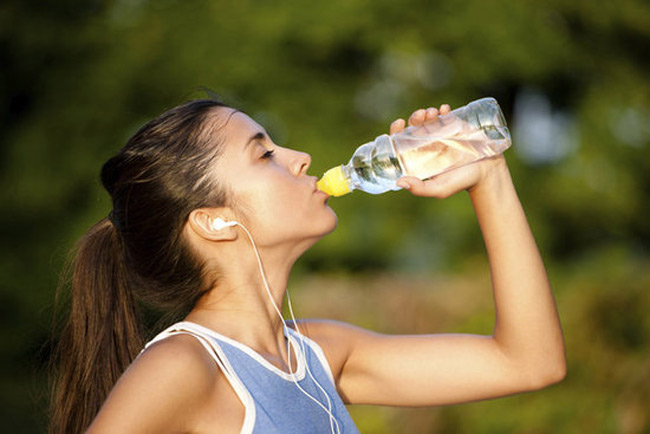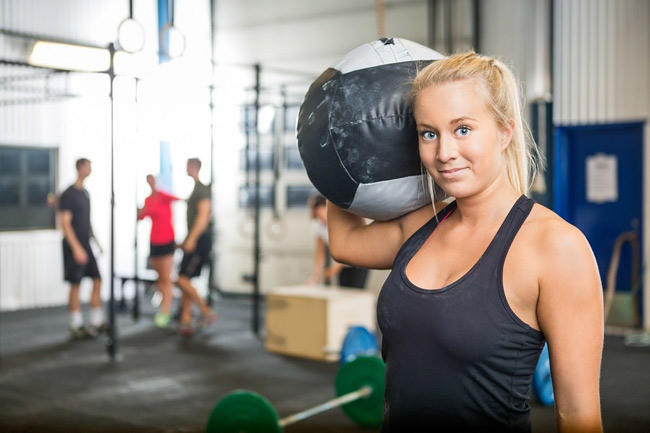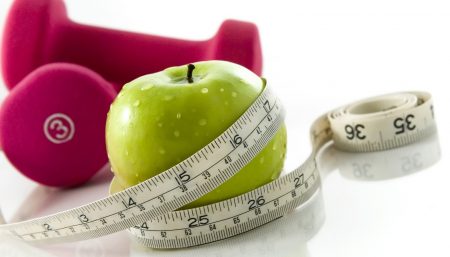
For the modern athlete, nutrition is taken as seriously as the training program. There are no shortcuts or false starts to a winning diet– the answer lies in balancing intake with output.
The physical and psychological benefits of exercise are undeniable but, when strenuous physical exercise is part of your daily life, you must make sure that you are eating the right diet for long-term health. Athletes have similar nutritional requirements to those of the average person but, because of physical exertion, they may have increased carbohydrate needs. An endurance athlete’s diet may consist of up to 67 per cent carbohydrate.
Diet Vs. Performance
Athletes should be wary of manipulating their diet to achieve short-term performance at the expense of lifelong health. No single food can magically enhance performance; only a good range of foods can enable an athlete to compete in peak condition. When a sports activity demands a high energy expenditure, an adequate intake of calories, macro-nutrients (carbohydrates, proteins, fats and fiber), and micro-nutrients (vitamins, most minerals and trace elements (is essential to maintain energy and fluid balance).
Athletes should follow a balanced diet which is ‘scaled up’ to meet increased energy needs. Contrary to popular opinion, there is no need to eat a high- protein diet when undergoing training; in most cases it is better to obtain extra calories from carbohydrates, although athletes with very high energy demands, such as oarsmen, need a greater than average intake of fat so that the diet is not too bulky. However, some less energetic sports- snooker for example- do not require any increase in calories.

THE FLUID FACTOR
During physical exercise, breathing out and sweating deplete the body’s reserves of fluids. Excessive perspiration can lead to a reduced flow of blood to the extremities, a reduction in blood volume and, in extreme cases, to dehydration, heatstroke and collapse. Therefore it is vital to drink water before, during and after exercise.
Commercial ‘isotonic’ sports drinks contain low levels of salts (to induce thirst and to replace minerals lost through sweating) and sugars for energy. Since these drinks are designed to prevent dehydration, they are not retained in the stomach and pass quickly into the small intestine for absorption. A cheap substitute is to dilute fruit juice 1:1 with water.
MORE MINERALS
The mineral content and requirements of tissues and cells differ. Bone contains a lot of calcium; muscle cells contain large amounts ofpotassium and magnesium, while blood carries high levels of sodium and chloride. A shortage of minerals will normally be compensated for by reduced excretion or by the release of some of the minerals stored in the body’s tissues.
If you run a marathon and are temporarily depleted of minerals, these will probably be restored without you making any changes to your diet, but prolonged mineral deficiency can be serious. Some authorities advise the use of multi-mineral supplements, although there is no scientific proof that these significantly improve the performance of athletes.
The potassium in muscles is gradually lost as they work repeatedly during exercise. The body needs this mineral for the release of energy, a regular heartbeat and movement of digested food. Replenish stores by including plenty of potassium-rich foods in your diet; good sources are lean meats, vegetables, nuts, pulses and fruit-especially bananas.
Low magnesium levels have often been found in athletes engaged in endurance exercise. When too little magnesium is available for use it can interfere with the release of energy, causing fatigue and possibly muscle cramps leading to poor muscle tone. Foods rich in magnesium include seafood, dark green leafy vegetables, whole grains, nuts and pulses.
Much of the zinc in our bodies is stored in bone and muscle; only a small amount is readily available, mainly in the blood. Zinc is lost primarily through urine and sweat, so athletes need to watch their daily intake. Good sources include seafood, offal, eggs, wheatgerm and pulses.

ANAEMIA IN FEMALE ATHLETES
Although the exact reasons are not fully understood, female athletes are known to be at risk from anaemia. It is important, then, that they should have an adequate intake of iron, folate and vitamin B12 to support normal blood formation. Good dietary sources of iron include red meat, offal, egg yolks and dark green vegetables. Folate can be obtained from liver, wheatgerm, cabbage, pulses, broccoli and yeast extract, while sources of Vitamin B12 include offal, poultry, fish, eggs and dairy produce.
LOOK AFTER YOUR BONES
Almost all the body’s calcium is in the bones: 1 per cent is available elsewhere in the body, and may be lost through sweating. Bones, despite their deceptive hardness, constantly need to absorb and release calcium and, when calcium intake is low, bones become weaker. Ensure that the diet contains adequate calcium by taking plenty of milk and other dairy produce, as well as green leafy vegetables.
Young women athletes, especially long-distance runners, are particularly susceptible to reduced bone density or Osteoporosis, when exercise, stress and weight loss leads to depressed oestrogen levels, resulting in irregular or missed periods and inefficient calcium metabolism. This probably a consequence of the very low levels of body fat that the runners strive to maintain. Tennis players and swimmers are less likely to have problems because they usually have more body fat. Women who take regular, medium-impact exercise-such as walking or jogging in good sports shoes-can take heart, as this type of exercise actually lowers the risk of osteoporosis.
GLYCOGEN: THE MUSCLE FUEL
Glycogen is the main fuel the muscles use when they move. It is produced form the glucose provided when carbohydrates are digested, and is stored in muscles and in the liver. Unfortunately, the body can store only a relatively small amount of glycogen, so athletes need ahigh-carbohydrate diet to make sure glycogen stores are always full before any activity.

BEAT THE FATIGUE WALL
When glycogen stores are exhausted, for instance during a marathon, an athlete hits the ‘wall’ of fatigue and feels too exhausted to continue the event. Gradually increasing training in the run-up to an event, while maintaining a diet high in complex carbohydrates, such as potatoes and rice, can increase the period of efficient performance. Some athletes used to prepare for major events by ‘carbo loading’, that is: cutting down on carbohydrate- rich foods for several days, and then overloading with foods such as bread and pasta for two or three days immediately before an event. These days most athletes keep to a diet high in complex carbohydrates all the time.
WHY FATS ARE NEEDED
Because the emphasis in an athlete’s diet is on a high carbohydrate intake, fat intake need only make up about 30 percent of calorie intake. Muscle uses fat as its preferred fuel during light exercise, but carbohydrate is used up faster at higher levels of activity. A high carbohydrate intake can improve endurance, but it makes for a very bulky diet. Adding fat to food can double its energy value without adding too much bulk. When adding fat to the diet, unsaturated fats (found in vegetable oils and oily fish) are healthier than saturates(the hard fats in cheese, butter and meat) and the Trans fatty acids (present in most margarines). However, you should not attempt to exclude all saturated fats from the diet.
Disclaimer
The Content is not intended to be a substitute for professional medical advice, diagnosis, or treatment. Always seek the advice of your physician or other qualified health provider with any questions you may have regarding a medical condition.








